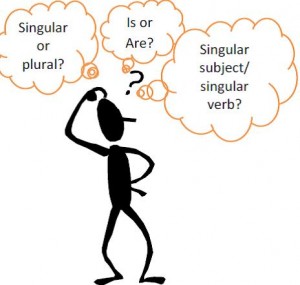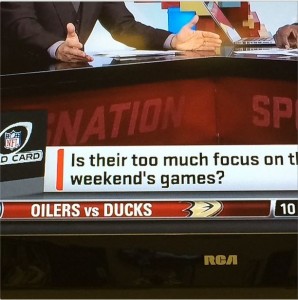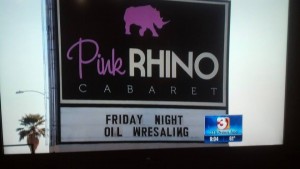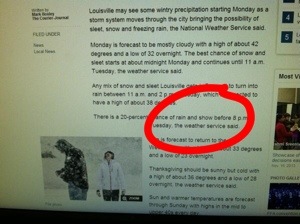 We’ll look at more subject/verb agreement today. If you missed last week’s topic, please see “Singular Verb, Plural Subject, Both . . . and, It’s All About the Agreement.”
We’ll look at more subject/verb agreement today. If you missed last week’s topic, please see “Singular Verb, Plural Subject, Both . . . and, It’s All About the Agreement.”
When you have two subjects connected by and and preceded by each, every, many a, or many an, use a singular verb.
- Every car, truck, and van on the street is going 15 miles over the speed limit.
The same sentence without every would use a plural verb.
- All cars, trucks, and vans on the street are going 15 miles over the speed limit.
When you have two singular words joined by or, either . . . or, neither . . . nor, not only . . . but also, the subject is singular and so you use a singular verb.
- Neither the bride nor the groom was ready to walk down the aisle.
- Either basil or mint is called for in the recipe.
- Not only billing but also his expense reimbursement needs to get done on the first day of the month.
If, however, the subject is two or more plural words joined by or, either . . . or, neither . . . nor, not only . . . but also, then the subject is plural and you must use a plural verb.
- Neither the paralegals nor the attorneys have any time for that project.
- Either red roses or white daisies make her happy.
Just to keep it confusing, if you have a singular and a plural subject joined by or, either . . . or, neither . . . nor, not only . . . but also, your verb should agree with the nearest part of the subject. It usually sounds better to have plural verbs, so where possible, you should try to move the plural subject closest to the verb whenever you can.
- Neither Joe nor his brothers are going to the beach.
- Neither Joe’s brothers nor Joe is going to the beach.
- Not only research knowledge but also grammar skills are important in a job search.
When you have an intervening clause between subject and verb (or multiple subjects and a verb), ignore the intervening clause to determine if you need a singular or plural verb.
- The point of the exercises was to teach correct use of apostophes.
- Only one of the examinees was prepared with supplies.
I hope that helps with subject/verb agreement. If you have any questions about this or have another topic you would like to see covered, please let me know at proofthatblog@gmail.com. Also remember that you can add your email address to the “Subscribe to Blog via Email” area on the top right hand side of the page and the posts will be emailed to you! Lastly, if you are learning something, please share with others who might be interested. Thanks!


 Follow
Follow







